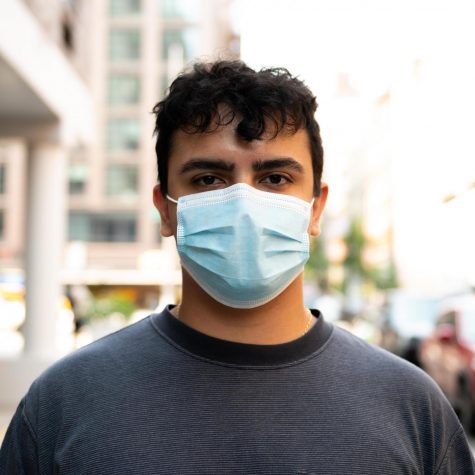The Soapbox: COP26 climate summit edition
The Soapbox is a weekly column by WSN’s news desk examining the major developments in world news and rounding up the stories we think are worth the read this week. Global consciousness for a global university.
The Soapbox is a weekly news column rounding up stories worth reading for a global university. (Staff Illustration by Susan Behrends Valenzuela)
November 5, 2021
In Glasgow, negotiators are left to figure out the nitty-gritty of the climate crisis
The “high-level segment” of the United Nations Climate Change Conference (COP26) has ended, and major leaders have departed Glasgow, Scotland, leaving behind diplomatic teams who will negotiate the details of international responses to the climate crisis.
The goal of COP26 is to get the world back on track with the goals of the 2015 Paris Agreement — to limit global warming below 1.5 degrees celsius above pre-industrial levels and to reach net-zero carbon emissions by 2050. Each country must play their part through nationally determined contributions, though many have gone unfulfilled since 2015.
World leaders, civil society organizations and climate justice activists descended on Glasgow for the conference, which started Oct. 31, including Japanese Prime Minister Fumio Kishida, Indian Prime Minister Narendra Modi and U.S. President Joe Biden.
Notably, though, Russia’s Vladimir Putin, China’s Xi Jinping and Brazil’s Jair Bolsonaro were all absent, despite the fact that China and Russia are now among the top five carbon-emitting countries. Additionally, Bolsonaro’s presidency has seen widespread wildfires and deforestation devastating the Amazon rainforest, parts of which are now emitting carbon dioxide faster than they are sequestering it.
More than 40 countries, including Indonesia, Poland and Vietnam, pledged on Nov. 4 to phase out the use of coal-fired power generation, which is the single largest contributor to global temperature increase. But some of the world’s biggest coal users — including Australia, India, China and the United States — did not sign on to the pledge, and have not signaled that they will change their plans to build new coal-based plants.
Holding a massive climate summit during a global pandemic is no easy feat
The summit was canceled at the beginning of the COVID-19 pandemic and later postponed for a year. Even then, despite a range of vaccines now being administered around the world, the pandemic barred many from attending.
Reuters reported that, of the 14 Pacific island nations usually present at the conference, only three were able to make it this year due to COVID-19 restrictions. Tiny islands like Fiji and Tuvalu have reported extremely low levels of COVID-19 throughout the pandemic and are attempting to keep it that way, even as they lobby for climate action to save their low-lying environments.
Meanwhile, outside the conference, thousands of delegates and grassroots attendees have been forced to wait in long security lines for more than an hour at a time due to COVID-19 capacity limits and social distancing requirements.
“I have to point out that this is the environment that the COP26 negotiations [are] swimming in,” 16-year-old climate activist Alexandria Villaseñor, who travelled to Glasgow for the summit, wrote on Twitter. “An exclusionary, racist, ableist, classist environment directly informs the decision making process that is placed in it! The negotiating space that we create, as a planet, is one of the most important aspects of these talks and can ultimately set it up for failure or success.”
Outside the conference, activists report police repression
An estimated 100,000 grassroots climate activists — from Samoa to Kenya — have converged in Glasgow to compel leaders to take urgent action on the climate crisis.
The U.K.-based COP26 Coalition penned an open letter to the First Minister of Scotland on Nov. 4, saying they’ve been subjected to “heavy-handed and highly disproportionate” crackdowns by Scottish police while protesting outside the forum.
Senior members of the Scottish police previously promised that police presence at COP26 — which they have described as the largest and longest deployment of police officers in the history of the United Kingdom — would be “welcoming, friendly, and proportionate.”
Corporate involvement in COP26 draws suspicion and ire
More than 450 financial firms from around the world, who are calling themselves the Glasgow Financial Alliance for Net Zero, said they would contribute $130 trillion in private capital toward reaching net-zero in the next three decades. Rishi Sunak, Britain’s treasury chief, praised the commitment as a “historic wall of capital for the net-zero transition.”
Others, however, are more skeptical. When governments and corporations say they aim to reach net zero or climate neutrality, they are not committing to end the use of fossil fuels, but simply to balance harmful carbon emissions with equal levels of carbon absorption. Climate scientists have warned that net-zero emissions targets are simply too vague. This has led climate-focused non-governmental organizations and activists to lose faith in these commitments, which they say will fail to fix the root causes of global climate change.
“Big Polluters and the governments that do their bidding have begun to tout commitments to achieve ‘net zero’ emissions as solutions to the crisis they have caused,” the international nonprofit Corporate Accountability wrote in a recent report. “Big Polluters’ idea of ‘net zero’ is part of their continued plan to protect deeply unjust global systems, distract from taking the real action needed, and to evade responsibility for the climate crisis and to continue to pollute.”
The prominent Swedish climate activist Greta Thunberg, who arrived in Glasgow on Oct. 30, expressed her frustration over weak climate commitments and widespread corporate involvement in COP26, calling the conference a “Global North greenwash festival.”
Contact Suhail Gharaibeh at [email protected].
























































































































































